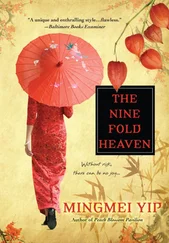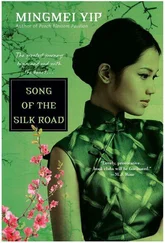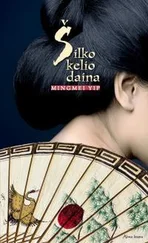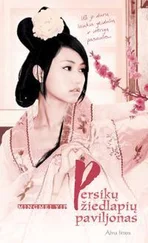Our conversation didn’t last long; Dai Nam said that she had come to the library to study and did not have time to talk. When I suggested we meet another day in a café, she would set no definite time. I was curious to get to know her better, so when I ran into her again in the institute I suggested we meet at the Café de Flore on Boulevard Saint-Germain. This time she agreed.
Dai Nam had been in Paris longer than I, so I imagined she’d have been to this famous place before. It would be my first time. I hoped I’d have the luck to sit at the same table where Jean-Paul Sartre and Simone de Beauvoir used to sit many decades ago!
Yet on Saturday evening when I arrived at the famous café, I felt disappointed. Except for the prices on the menu by the entrance, it didn’t look particularly special. Maybe it had been when Sartre and de Beauvoir set up literary shop here during World War II. Then I suddenly remembered my guidebook’s comment: “As with all historic cafés, beware of the prices!”
I took a seat on the front row of the terrace. It was one of those days in Paris when people looked as if merely breathing the Parisian air was the greatest blessing in life. Near me sat two giggling young Japanese women with expensive suits and handbags. Two French women lounged and smoked, hurrying sips of espresso amidst ceaseless talk.
I turned to look at the busy boulevard. A taxi pulled to a stop in front of me and spat out a veiled and gloved old woman in a hat and coat. After she’d paid the driver with her shaking hands, she began to wobble along with the support of a crooked cane. Three chattering young women in four-inch heels and miniskirts strode past her, almost knocking her over, but not noticing. The old woman raised her cane to swing at their bared backs. She missed, but was not discouraged. In the middle of the street, she kept waving her cane in threatening arcs and mouthing obscenities at the departing figures. Bravo, I almost shouted to her. Where did she get her strength? Surely not from her arthritic hands nor her crooked cane. Was it from jealousy aroused by the aura of youth and beauty that had once shone on her, but had now passed on to the girls? I was lost in this scene when Dai Nam’s voice rang like a broken bell in my ears. “Meng Ning.”
I looked up and saw my friend in a plain white cotton shirt, loose dark blue slacks, and sandals. Her hair seemed shorter than the last time I had seen her. Her large, thick-lensed glasses perched low on her nose, blurring her otherwise quite delicate features. She had a large green canvas bag slung across her sturdy shoulders.
Dai Nam sat down and immediately asked me about my life in Paris.
“I love it,” I said.
“Why?”
Both her tone and question surprised me, so I pondered for a while before I said, “The whole city has so much energy, like a piece of calligraphy saturated with qi.” Then I looked at her pale, chapped lips, wondering how they’d look if painted a seductive red. “What about you? Do you love Paris?”
Dai Nam’s eyes followed a passing young woman who was fondling her terrier. “I like it OK, but I wouldn’t use the word ‘love’.”
Right then a waiter came to take our order. Dai Nam read the menu very carefully before she whispered into my ear, “There’s almost nothing for me in this café…either too expensive or too strong.”
“Oh, I’m sorry. I picked it because Sartre and de Beauvoir used to come here. So I thought you would like it.”
She adjusted her glasses and looked around; her gaze flickered suspiciously. “I’ve never been here before, never even heard about it.”
“None of your friends have ever mentioned the famous Café de Flore to you?”
“I don’t have friends.”
An awkward pause. Finally I ordered espresso and she Orangina. After the waiter had left, I said, “Dai Nam, next time you can order espresso like me; it’s the cheapest. Other drinks cost double.”
“I don’t drink anything with caffeine-except Chinese tea.”
“You can’t sleep at night?”
“No, not that…”
“You don’t like the taste?”
“No, not that either.”
The waiter returned with our order. “Espresso et Orangina.”
After he left, Dai Nam took a long sip. Her gaze looked abstract while her face seemed to relax a little. “I was a nun in the past.”
The revelation took me by surprise. “Oh, then…” I looked at her full head of hair. “Why did you quit the Sangha ?” I asked, referring to the Buddhist order of monks and nuns.
“Because my mission had ended.”
“Your mission? What was that?”
Dai Nam took another noisy sip of her Orangina. “To gather materials to write about my experience as a nun.”
I tried but failed to think of a comment on this peculiar reason for becoming a nun.
Dai Nam’s voice was a monotone amid the high-pitched chatters and giggles of the two Japanese women to our right, the earthy, asthmatic voices of the two French women to our left, and the busy traffic in front. “I chose to shave my head in Thailand because in that country nuns are discriminated against within the Buddhist order. I wanted to understand the situation based on firsthand experience.”
Before I had a chance to ask whether she was a feminist, Dai Nam said, her gaze darting between several teenage girls giggling as they walked past the café, “Since women cannot be ordained there, I wanted to break that tradition. Maybe ‘break’ is not the word; ‘break through’ is more appropriate.”
“Did you succeed?”
“No. I completely failed,” she said. “During my four years in Thailand, not a single monk was willing to ordain me.”
“Why?”
“Because the tradition of ordaining nuns had long been abandoned. And no monk is willing to revive it. No one has the courage to shave a woman’s head.”
“But what’s the big fuss about shaving a woman’s head?” Like a mountaineer, my voice climbed higher and higher.
“Monks are not supposed to touch women-not even their heads.”
“But we’re living in the twentieth century!”
“Yes, you are, but not those monks. Inside the temple walls things are pretty much the same as they were a thousand years ago. The monks don’t feel they have any grounds to change the rules that have been the same since the Buddha’s time. So finally I shaved my own head, put on a nun’s robe, rented a small hut, and practiced on my own. Besides meditating, I begged; sometimes I also sat in the back of a temple and joined in the chanting. The Thai monks were very uneasy about what I did.” Dai Nam went on after some consideration. “I looked and lived like a nun, but at the same time I was not a nun.”
“Then how do you feel about being…a non-nun nun?”
She frowned. “The Chinese say, ‘being disappointed by the secular world, one puts on a Buddhist robe. Being more disappointed by the Buddhist regime, one puts it off.’ That’s how I felt.”
I tried to digest what she’d said. “Then are you…content with your life now?”
“I am disappointed both by being a nun and by not being a nun.”
“Then what are you going to do with your life? I mean…what will you do?”
“I’m still looking for the true Dharma and I won’t give up until I find it.”
“What is this truth you want?”
Dai Nam picked up her cup and swallowed the last drop of her drink. The neon lights cast colors of red, yellow, blue, and green on her face. It was like the tension in a theater before the show begins. While everything is ready-music blaring and lights criss-crossing-something is still missing.
Dai Nam’s voice again sounded disturbingly harsh. “An intense spiritual life. Having visions, opening my third eye, being at one with things and beings, and most important, achieving nonattachment.”
Читать дальше











